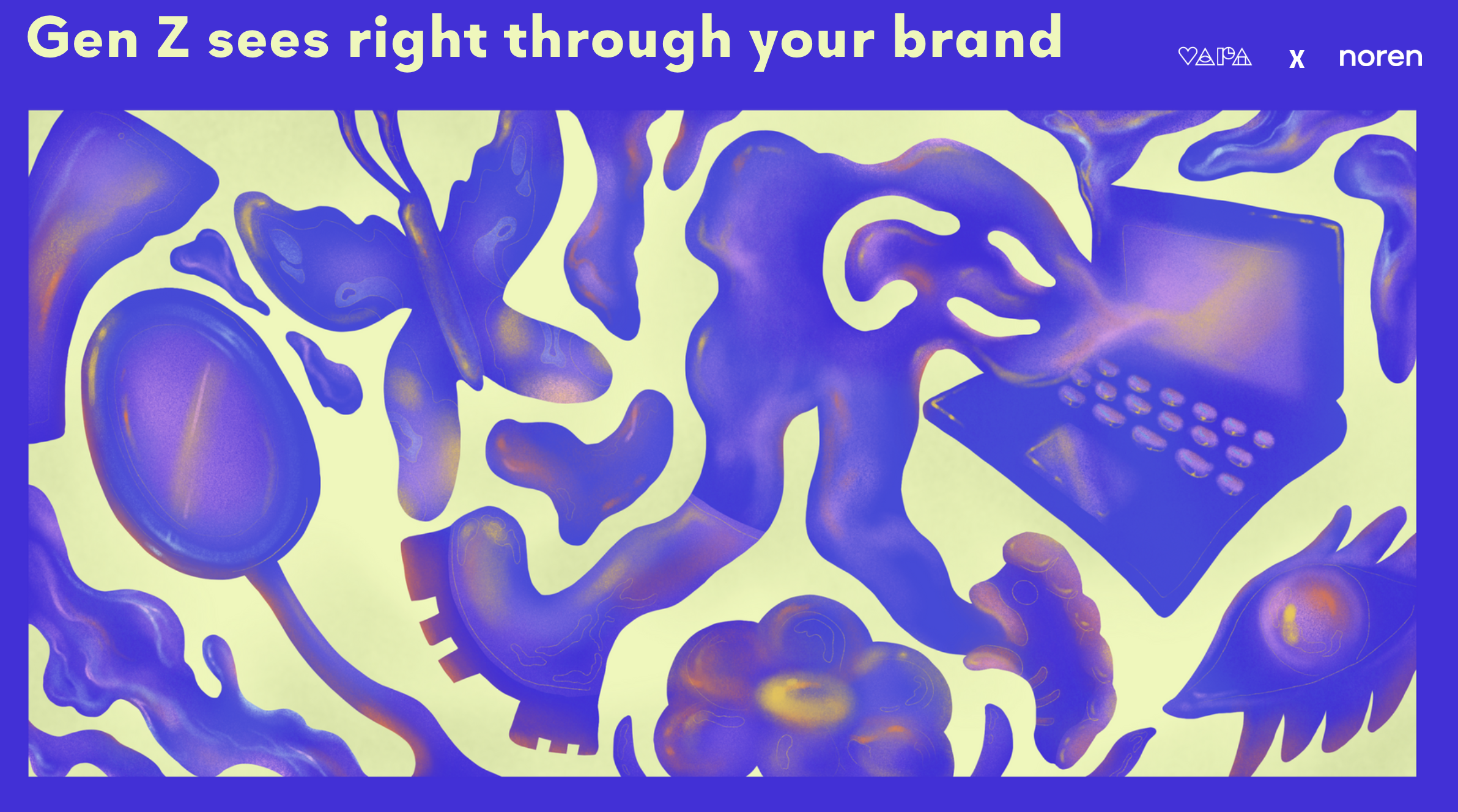What kinds of brands will succeed when Gen Z turns the logic of marketing on its head?
There are thousands of analyses about Generation Z, yet most of them reduce young people’s world into statistical graphs. They fail to illuminate the deeper context that would help us understand why young people behave the way they do.
This report reveals something entirely new about this generation – because questions of branding have never before been explored through virtual ethnography. What we found is that young people’s experiences are shaped by two distinct phenomena unique to their time.
Firstly, they were born into an era where personal branding is at its peak. Young people are acutely aware that everyone is carefully curating their own public façade – and it has become increasingly difficult to discern who truly lies behind these façades.
Secondly, they have grown up in a culture of increasingly polarised public discourse, and are keenly aware of the risks involved in stepping into the public eye. They find it exhausting to constantly weigh what can safely be said and to wonder, in turn, who can be trusted behind the public mask.
Amid all this pressure, a new ideal has emerged – one we call the ideal of revealing authenticity.
Revealing authenticity is about a person or a brand showing up as they truly are. Young people seek out safe spaces where they dare to appear as themselves. They admire those who take the risk of bringing their true selves onto public stages. This ideal shapes how they interpret not only the people and brands they encounter, but also political figures – and in doing so, it is transforming the entire logic of communication.
